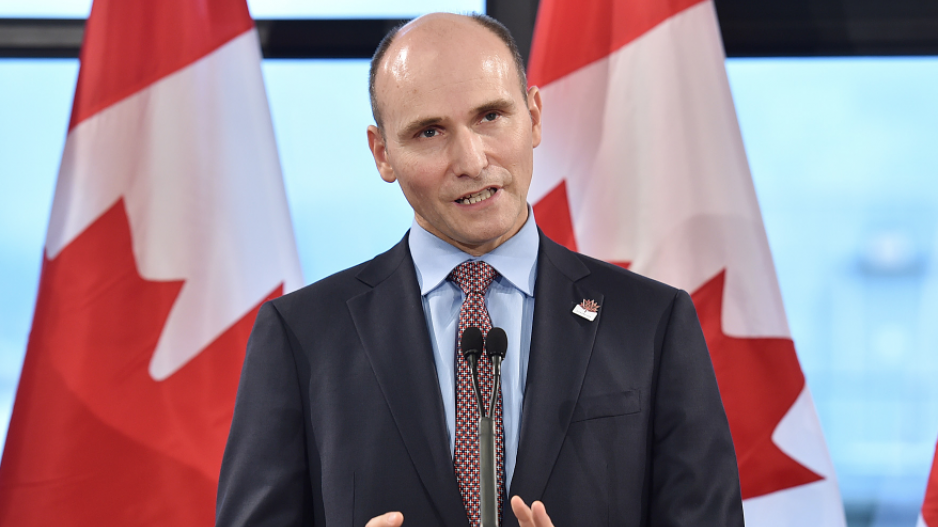Canada’s $40 billion National Housing Strategy was rolled out in rainy Vancouver November 22, but the joint government announcement proved as long on self-congratulations as it was short on details.
Bottom line for B.C.’s homeless: a plan to reduce your numbers by 50% could begin in 2020. Renters could receive a monthly subsidy of about $200, providing all levels of government share the cost – and there is no federal election upset before the strategy rolls out.
Jean-Yves Duclos, Minister of Families, Children and Social Development and minister responsible for Canada Mortgage and Housing Corp., outlined a bold strategy during a noon-hour press conference at the subsidized Woodwards housing development in Gastown.
Duclos emphasized that it will take a co-operative approach and joint funding from provincial and territorial governments to deliver the 10-year program that is to begin following the 2019 federal election.
The National Housing Strategy includes:
- $15.9-billion for a new National Housing Co-Investment Fund;
- $8.6-billion for a new Canada Community Housing Initiative in partnership with provinces and territories, and $500 million through a new Federal Community Housing Initiative;
- $4-billion for a new Canada Housing Benefit to be launched in 2020 in partnership with provinces and territories. This will provide a $2,500 annual rental subside for about 385,000 low-to-mid-income tenants;
- $2.2-billion to reduce homelessness;
- $300-million in additional federal funding to address housing needs in Canada’s North; and
- $241-million for research, data and demonstrations.
When asked by reporters for specifics on the amount and timing of Metro Vancouver’s share of the largesse, Duclos said, “Details will be worked out.”
“We are looking for details,” Selina Robinson, B.C. Minister of Municipal Affairs and Housing told the press conference, “And they can’t come soon enough.”
The BC NDP government is expected to flesh out its housing policy in its February 2018 budget, but Robinson said the province is committed to delivering 14,000 low-cost housing units within the next 10 years.
So far, Robinson said, the province has commitments from municipalities for 900 units of low-rent modular housing, none of which have yet been delivered.
The City of Vancouver released its Housing Vancouver strategy an hour before the press conference. It proposes a significant increase in housing supply: 72,000 new homes over 10 years, with two-thirds of those homes to be rental. Affordable rentals, the city states, is defined as studio apartments from $850 per month to one-bedrooms at $1,200, and two-bedroom suites at $1,600 per month. The city is also proposing creating rental-only zones in the city.
“In a near-zero rental vacancy market, and with more than half of households in the city renting, many renters are in precarious situations,” said Mayor Gregor Robertson.
Developer and architect Michael Geller said all three governments would have difficulty securing enough land for the thousands of homes they are planning to build, since residential development land in Vancouver is now selling for north of $450 per square foot.
The rental rates recommend in Vancouver are a “fantasy” said David Goodman of HQ commercial and perhaps the top rental building sales agent in the city.
“The rents are not high enough.” Goodman said, “It would take serious government subsidies to make those numbers work.”
The federal $200-per-month rental subsidy is “insignificant” he added.
Goodman said landlords should not fear sudden competition from new government-backed purpose-built rentals. “It will take years before we see any of these units.”
Goodman said that, due to zoning and permit delays and current backlogs, none of the rental apartments under the National Housing Strategy would be ready in Metro Vancouver for at least eight years.




